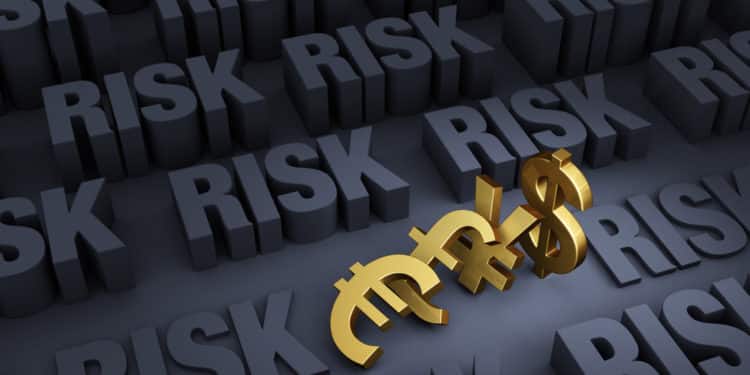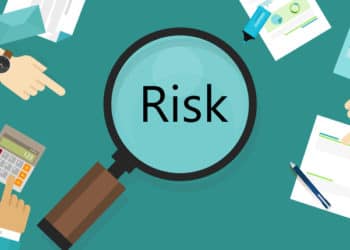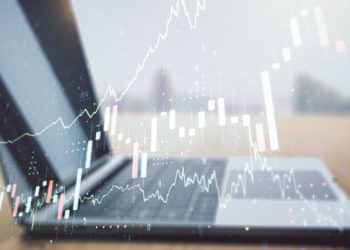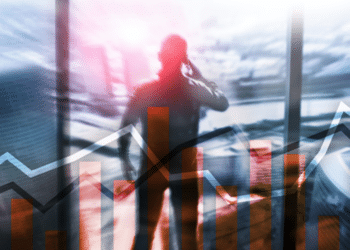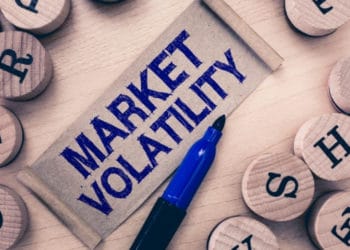What precisely are the risks of trading forex? This article will cover the main things to consider in this regard.
Virtually all forex-related services will include a disclaimer along the lines of ‘trading foreign exchange carries a high level of risk.’ Risk is only just a four-letter word, but one which has significant implications when not understood properly.
Successful trading is difficult to achieve since traders need to manage several kinds of risks simultaneously, almost like juggling many balls at the same time.
If a trader fails to recognize these, it leaves them exposed to the potential of losing some portion of their account. Hence, this article will alert readers to the main risks to consider when trading forex and methods of nullifying them.
The risks of leverage and exchange rate fluctuations
It only makes sense beginning with this risk as it’s easily the most significant for all traders. Prices fluctuate every second of the day, and some fluctuations tend to be quite volatile. Traders aim to make solid predictions on where they believe prices will move after a specific period.
Of course, such predictions can’t always be accurate, meaning the chance of losing is always ever-present. If we couple this with the leverage offered, losses could magnify themselves quickly, leading to the possibility of someone losing all or a large portion of their capital without recourse.
At a fundamental level, there is no holy grail or a strategy that will consistently make money without losses. Understanding this fact about the markets is one of the essential things to mitigating the leverage and exchange risks.
Successful traders recognize they shouldn’t use all leverage provided by their brokers. More importantly, these individuals will cap their maximum losses to small and manageable monetary amounts they are comfortable with and can realistically afford to lose.
Building a solid trading strategy offering you the most optimal circumstances and times to trade is also necessary for decreasing the exchange rate risk.
The risk of transaction costs
Ultimately, trading is a business, and like any business, we have some expenses. In the context of forex, our highest cost is the spread. While spreads are relatively competitive and low across all brokers, this is not always the case. This issue depends on several factors, namely the pairs you trade and when you trade them.
Popular markets, namely major and minor pairs, have the cheapest spreads since nearly all investors trade these markets. However, this isn’t the case with exotic pairs with higher transaction costs due to their lack of popularity. Hence, it’s common for most to stick with the major and minor markets for this very reason.
It’s not just the markets you trade but also your trading frequency. Higher-frequency traders often have smaller profits where spreads can form a big portion of these. Traders here will want to consider a fixed spread account to minimize their transaction costs.
Another point worth mentioning regarding spreads is when you trade, which boils down to liquidity issues. Certain occasions in the markets, such as during high-impact news, the rollover period, and when sessions overlap, are typically not favorable for any strategy.
This is because spreads tend to widen erratically, leading to less than optimal entries and slippage. Hence, you’ll need to know the best time to take a position and not to. Ultimately, the transactional cost of doing business in trading can undoubtedly affect your profits in the long run and where you enter the markets.
The risk of interest rates
Interest rate risks apply both on the daily exchange fluctuations and more pertinently for long-term traders holding their positions overnight. So, how do these rates pose a threat to investors?
Of all news announcements published daily, interest rate releases like those from the Federal Reserve and other central banks tend to move currencies, often significantly. In such scenarios, if a trader isn’t aware of the news, the moves can go against them dramatically or increase transaction costs.
On the second point regarding long-term traders, changes in interest rates affect them in terms of carry trades, a strategy where investors buy or sell a particular pair to earn positive daily interest. The longer they hold their positions, the greater the swaps accumulate over time.
Any negative changes in the figures from the respective central banks may see an investor’s profit gradually dwindle. As with anything, it’s critical to be aware of news pertaining to interest rates to make the best trading decision.
The risk of using an unregulated broker
Forex trading is unique in its highly decentralized nature. Unlike exchange-traded financial products like stocks, foreign exchange occurs between distributed market makers and dealers worldwide.
Although this structure provides several benefits, it is also one of the criticisms of forex since many unregulated brokers exist in this space. Typically, such organizations can manipulate prices, delay or not settle withdrawals, and other shady practices.
Fortunately, this market segment is relatively tiny compared to all the ethical brokers in the industry. However, some traders may not recognize how regulated their respective broker is, leaving them exposed to unwanted dangers. Luckily, mitigating this particular risk isn’t so difficult.
It boils down to using brokers licensed by recognized regulators like CySEC, ASIC, FCA, CFTC, and other reputable bodies from North America, Europe, and Australia. Traders will avoid relatively unknown brokers based in so-called offshore countries like Cayman Islands, Belize, The Bahamas, etc.
These regions are known for having less lax regulation rules, and it’s not uncommon to have brokers with no operating license whatsoever. Another tip is also sticking to brokers who follow the appropriate KYC (Know Your Customer) protocols instead of those who don’t.
Final word
In the words of the Oracle of Omaha, Warren, “Rule no. 1: never lose money; rule 2: never forget rule no.1” As a trader, there are several forces against you that can dwindle your trading account.
Your job at all times is to be aware of such risks and reduce them systematically. With this approach, a trader increases their chance of keeping as much of the profits as possible.


